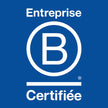Written in partnership with Dr Clarence De BELILOVSKY, dermatologist member of the Mustela circle of experts. Atopy We speak of atopy when the body excessively produces specific antibodies: immunoglobulin E (IgE).
In the presence of allergens, the immune system will overreact: this is an allergy.
This atopy can take different forms: it affects the skin in the form of eczema but there are other possible manifestations such as asthma, hay fever, conjunctivitis, etc.
Eczema Eczema is a non-contagious skin condition that generally causes severe itching.
There are different types such as contact eczema or atopic eczema.
The latter alternates periods of surges and periods of calm. It can appear in an infant's first months.
Eczema is a non-contagious skin condition that generally causes severe itching. There are different types such as contact eczema or atopic eczema.
The latter alternates periods of surges and periods of calm. It can appear in the first months of an infant.
Emollient Emollients are treatments which have the effect of softening the skin and relaxing inflamed tissues.
They are recommended both to nourish and take care of atopic-prone skin during periods of calm, as well as to treat and relieve during a flare-up in addition to a specific treatment.
Certain emollient treatments can even immediately reduce the sensation of scratching in the event of itching by up to 95%. How to choose them? Baby-child specific, natural and/or patented active ingredients, extreme tolerance, hypoallergenic, without preservatives…
These indications are all guarantees for the well‐being of your child. Allergen Allergens are substances that cause an allergic reaction in certain subjects when confronted with them. It can be found in the environment (pollen, mites, animal hair) as well as in food.
Dermocorticoid Dermocorticoids are medications based on corticosteroids to be applied locally to the skin to treat certain inflammations.
Since 2004, a classification into 4 groups according to their level of activity has been established:
• class I: very strong activity.
• class II: strong activity.
• class III: moderate activity.
• class IV: low activity.
Sudden outbreak of rash.
Pruritus Sensation of itching of the skin, more or less intense.
In some cases, treatment can immediately reduce the sensation of scratching by up to 95%. Dermatitis Dermatitis refers to inflammation of the skin.
As such, atopic eczema is also called atopic dermatitis.
And dermatosis? Dermatitis includes all skin conditions. Yes, atopic eczema is therefore both a dermatosis and a dermatitis!



